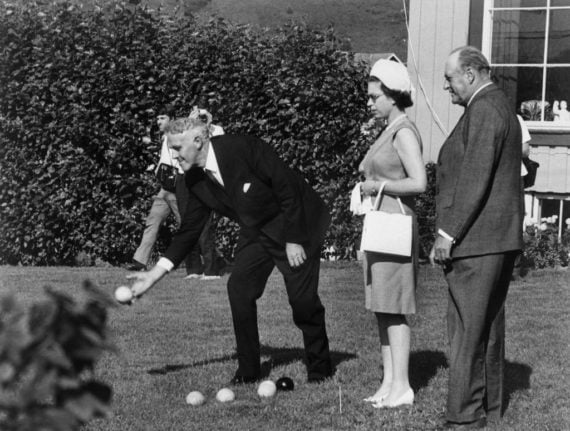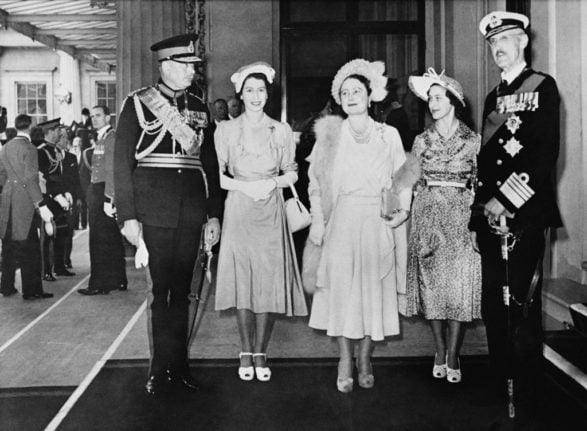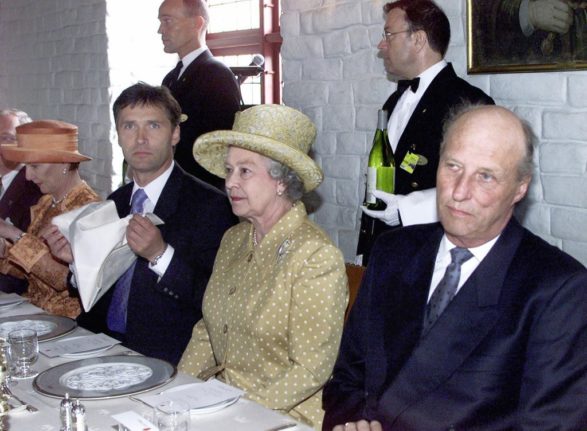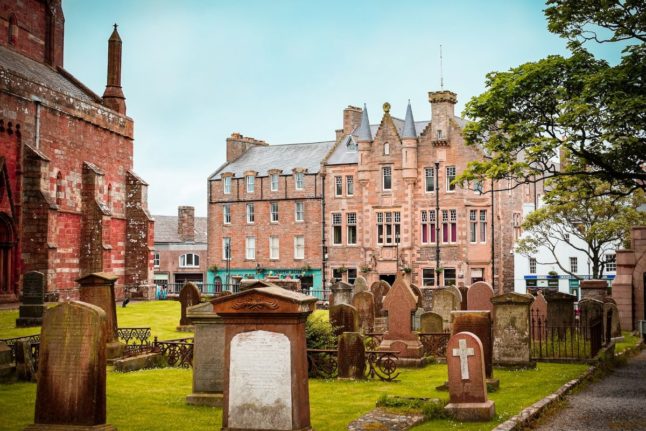Following the death of Queen Elizabeth II at her home, Balmoral, aged 96, tributes have poured in from Norway.
Norway’s Royal Family, Norwegian prime minister Jonas Gahr Støre and Nato General Secretary and former Norwegian PM Jens Stoltenberg were among those to pay their respects.
READ MORE: Norway pays tribute to Queen Elizabeth II
Queen Elizabeth, Britain’s longest-reigning monarch, died at her home in Scotland, Balmoral, aged 96, on Thursday.
“Our thoughts are with His Majesty The King and the members of the Royal Family on the loss of Queen Elizabeth. For nearly a century, Her Majesty devoted her life to the service of the Commonwealth, following the British people through good days and bad, in times of happiness and sorrow. We also send our condolences to the British people,” the Norwegian Palace wrote on its website.
King Harald of Norway is Queen Elizabeth’s second cousin. They shared the same great-grandparents, King Edward VII and Queen Alexandra, who were the father and mother of Norway’s Queen Maud.
Queen Elizabeth is also the only head of state who has carried out three official State Visits to Norway. Below you can see a picture of her playing boules with Norwegian Prime minister Per Borten near Trondheim in 1969.

The closeness between the Norwegian and British royal families runs much deeper than familial ties and foreign visits. During World War II, the Norwegian royals fled to the United Kingdom and were in exile in London throughout Germany’s occupation of the country.
The Norwegian royal’s exile in London brought the two royal families close together, and the King of Norway at the time, Haakon, was referred to as “Uncle Charles” by Elizabeth, then a Princess. The Norwegian Royal Family’s website claims that King Charles III was named Charles after King Haakon, or “Uncle Charles”, as Elizabeth called him.
Once the war was over the two families remained close. Below you can see Elizabeth, still a princess, with her “Uncle Charles” in 1951.

When Queen Elizabeth acceded to the throne, aged 25, in 1952, her first foreign trip to a country outside the Commonwealth was to Norway. This closeness has been reciprocated. Before his death, King Olav, who was Crown Price during the Norwegian Royal Family’s exile in London, joined the British Royal Family every year on Remembrance Day to honour members of the Armed Forces.
King Harald has continued the close relationship between the British and Norwegian royals. King Harald and Queen Sonja have paid annual visits to the United Kingdom throughout their reign.
Below you can see King Harald and Queen Elizabeth II sat next to one another at a governemnt lunch at Akerhus Fortress, Oslo, in 2001.

On Friday, King Harald offered his condolences to King Charles III following his mother’s passing, describing her as a “dear relative and confidant friend.”
“Your Majesty King Charles III, my family and I are deeply saddened to receive the news that Her Majesty Queen Elizabeth II has passed away. Our thoughts and prayers are with Your Majesty and the members of the Royal Family. For nearly a century, Her Majesty devoted her life to the service of the Commonwealth, following the British people through good days and bad, in times of happiness and sorrow. We send our deepest condolences to the British people on the loss of their beloved Queen,” the message begins.
“On a personal note, I am mourning the loss of a dear relative and confidant friend. My family and I wish Your Majesty and your family all the strength and comfort you need in this time of grief,” King Harald’s message of condolence concluded.



 Please whitelist us to continue reading.
Please whitelist us to continue reading.
Member comments